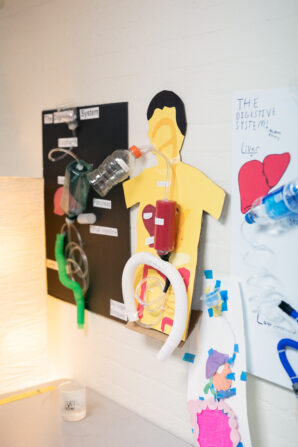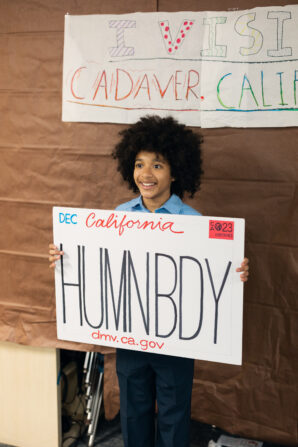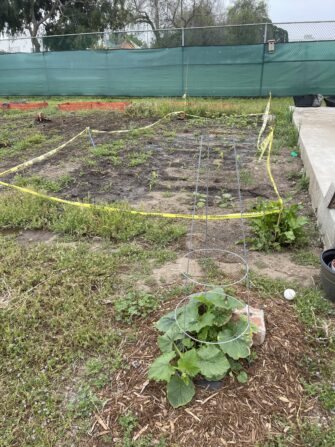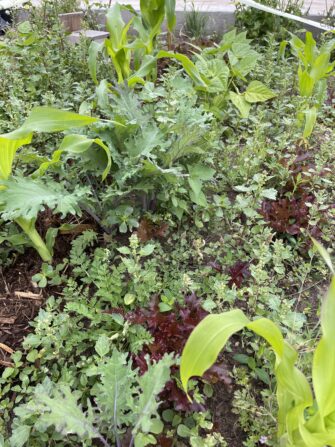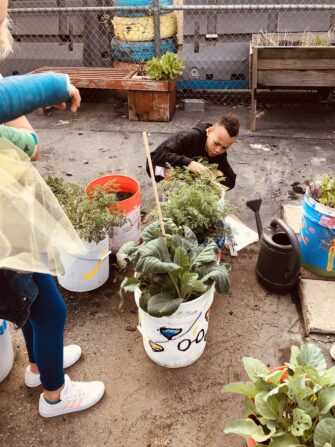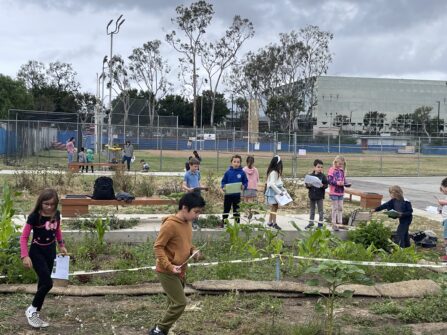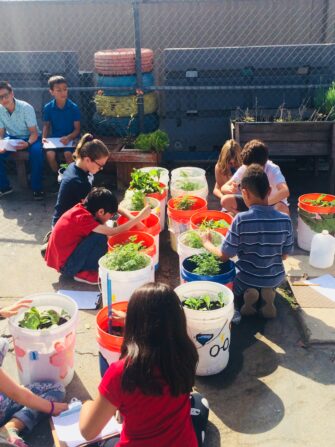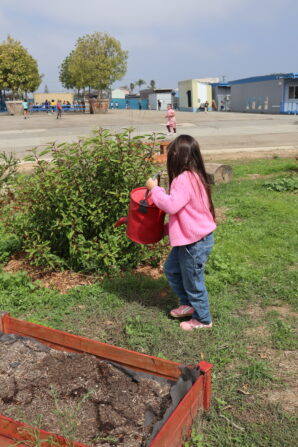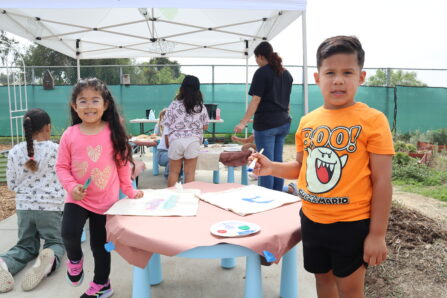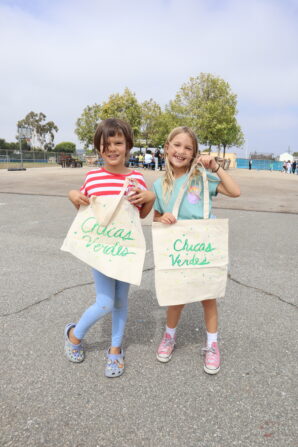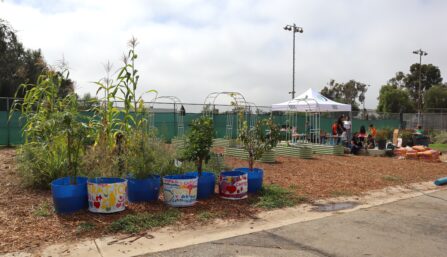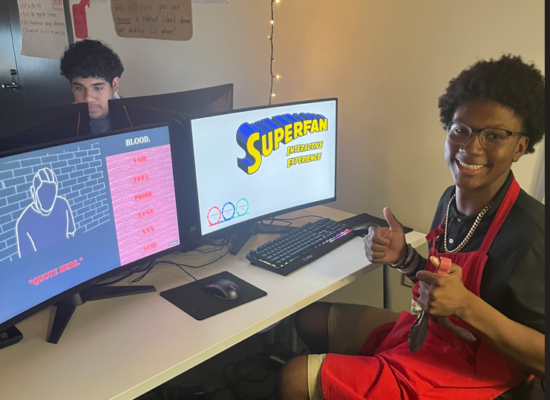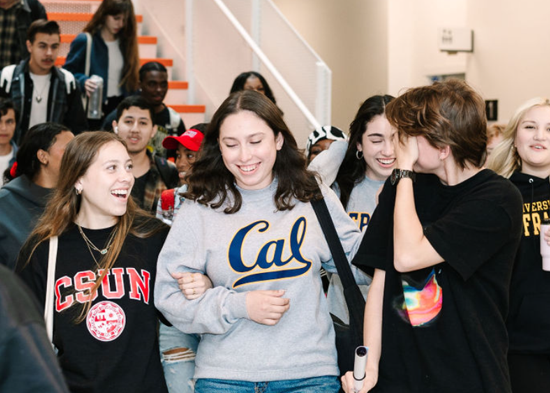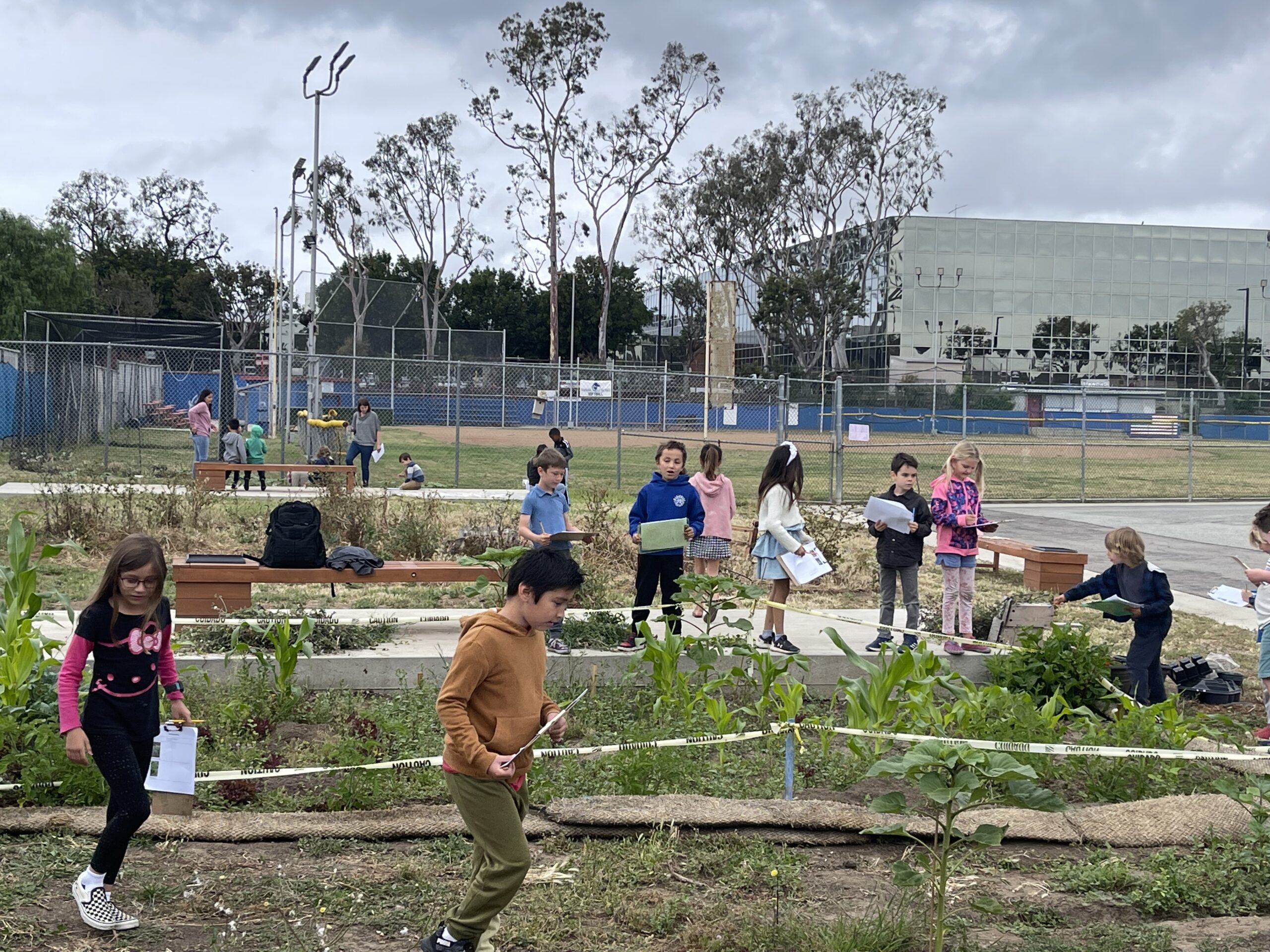
Garden-Based Learning at Da Vinci Connect TK-8
What first started as a food system project in Core 4 at Da Vinci Connect TK-8, has turned into a school-wide garden initiative with hands-on real-world learning opportunities for all students in an exciting outdoor classroom. A community partnership with Chicas Verdes further provides students with lessons in sustainability, healthy living, food access, water quality, and living up to the responsibilities of being good global citizens.
From Seed to Stomach
The yearlong journey to a campus garden began in Core 4 class with teachers Rita Bouchard, Katrina Amberry and Alex Agnone. Students investigated the connection between the human gut and a well-tended garden. Their efforts culminated in a fall exhibition project last year titled "Gut vs. Garden." The comprehensive curriculum included digestive health, sustainable agriculture, social microbes and enzymes, emphasizing the shared need for proper nutrients in both plants and humans to thrive.
As part of the curriculum, students watched King Corn, a 2007 documentary that traces the history and impact of America's most subsidized crop. Farheen, a student in Bouchard’s class, shares, “I didn’t know that corn was used in so many things, and that we eat it all the time without knowing it.”
Diving even deeper into nutrition, students examined food labels and were surprised to discover just how prevalent corn, often in the form of high fructose corn syrup, is in their favorite snacks. They researched the effects of high fructose corn syrup on human health, gaining awareness of its prevalence in processed foods.This project gave students not only the practical knowledge to grow their own food but also a profound understanding of how their food choices impact their bodies and the health of the environment.
Inspired by what they learned, students took action and advocated to transform an unused plot of land at Connect TK-8 into a thriving garden. The students planted corn seeds, learning about the entire process—from germination to harvest—and later enjoyed the literal fruits of their labor!
This project was about so much more than agriculture. It empowered students with essential skills for sustainable living. Students learned about composting and discovered the critical role that healthy soil plays in sustaining life. Drawing insightful parallels to human gut health, students recognized that just as soil teems with beneficial microbes that support plant growth, the human gut also relies on a similar microbial ecosystem to nourish and maintain the body. Through composting, students learned how to restore these beneficial microbes to the soil, unlike many conventional agricultural practices that often deplete them.
The Gut vs. Garden project inspired action across the school, with teachers like Darlene Wonggaew and her kindergarten students eager to join in. Wonggaew noted that the word "kindergarten" itself means "children's garden." She believes that playing in the dirt and forming a connection with bugs helps young children begin to build a meaningful relationship with food from an early age.
Outdoor Classroom
As interest in the outdoor garden blossomed, Connect TK-8 launched a Garden Club to ensure that all students have the opportunity to engage in this outdoor classroom. During lunchtime on Mondays and Thursdays, students have access to plant, water, and tend to the school garden.
Jahmal Durham, the Activities Coordinator at DV Connect TK-8, shares that the Garden Club was created as an “opportunity to foster student awareness of sustainability by teaching them how to grow their own food.” Through this hands-on experience, students build a deeper connection to their environment while learning how to restore, protect, and preserve the local ecosystem.
First grader Iris reflects enthusiastically on her experiences. Last year, she grew radishes, and this year she’s growing carrots. “I like that you get to put your hands in the soil and grow your own food,” she shares. “I’ve learned that different types of flowers have different needs– some need more sunlight, and others need more water.”
Ja’dah, in third grade, shares the same sentiment about working in the garden stating “I like when you can plant the seeds, dig the holes, and water the plants. I also like that you can eat the food when it grows.”
Chicas Verdes, a non-profit that brings structured gardening programming and social justice initiatives to schools, recently partnered with Connect TK-8. They provided eight raised garden beds, four arched trellises, and eight fruit trees to enhance the outdoor garden space. Every Tuesday and Friday at lunchtime, students can participate in activities with Chicas Verdes staff that further deepen their connection to food and the environment.
Helena, a third grader, loves spending her lunchtime with Chicas Verdes. “I like that we planted basil! It helps me learn more about plants by working in the garden,” she shares. I’ve learned that all they need is love, care, soil, water, and sunlight.”
As the Garden Club continues to grow, we look forward to expanding collaborations across all school sites, fostering even more opportunities for hands-on learning, mentorship, and environmental conservation.

